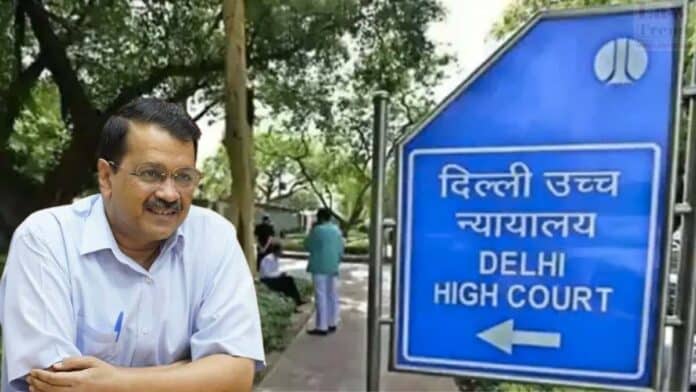In a significant development, the Delhi High Court on Friday, June 21, stayed the order granting bail to Delhi Chief Minister Arvind Kejriwal in connection with a money laundering case linked to the controversial liquor policy. The stay will remain in effect until a final decision is made on the stay application filed by the Directorate of Enforcement (ED).
Justice Sudhir Kumar Jain, presiding over a vacation bench, passed the order and issued a notice on the ED’s petition challenging the previous day’s bail order by the trial court. The court has reserved its decision for two to three days, maintaining the stay on the bail order in the interim.
Background and ED’s Arguments

The urgency of the matter was underscored by the ED’s counsel, who made an urgent mentioning before the court, leading to the immediate hearing. Senior Advocate Vikram Chaudhari, representing Kejriwal, initially objected to the vacation listing, citing the detailed nature of the trial court’s bail order.
However, Additional Solicitor General (ASG) SV Raju argued that the bail order was “perverse” and contrary to the provisions of Section 45 of the Prevention of Money Laundering Act. He claimed that the trial court did not provide the ED with a full opportunity to present its case and criticized the court for dismissing the ED’s reply as “bulky” without proper examination. Raju emphasized that the Supreme Court had not stayed the Delhi High Court’s previous denial of bail to Kejriwal, thus underscoring the irregularities in the trial court’s decision.
Kejriwal’s Defence
Senior Advocate Dr. Abhishek Manu Singhvi, defending Kejriwal, criticized the ED’s approach, arguing that the agency was unjustly maligning the trial judge. He highlighted that the ED had ample time to present its case during the five-hour hearing, which included 3.45 hours of ED’s arguments. Singhvi clarified that the Supreme Court’s reserved judgment on the legality of Kejriwal’s arrest was still pending and that the trial court’s discretion in granting bail should not be overridden at this stage.
Singhvi argued that staying the bail order would effectively cancel it, a move requiring a higher threshold. He also pointed out that Kejriwal had complied with previous interim bail conditions and posed no flight risk.
Trial Court’s Observations
Yesterday, the Rouse Avenue Court’s Vacation Judge, Niyay Bindu, granted bail to Kejriwal, making strong observations against the ED. The judge inferred a bias in the ED’s actions and noted the lack of direct evidence regarding the proceeds of crime.
The High Court’s reserved order and subsequent final decision will be crucial in determining the next steps in this high-profile case involving Delhi’s Chief Minister.







